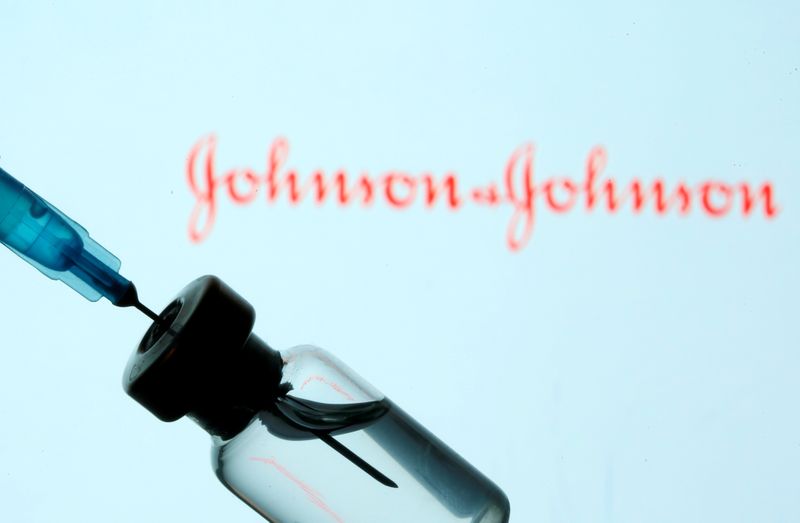By John Miller
ZURICH (Reuters) - A German scientist studying extremely rare blood clots linked to AstraZeneca (NASDAQ:AZN)'s COVID-19 vaccine said on Tuesday Johnson & Johnson (NYSE:JNJ) has agreed to work with him on the research after similar serious side effects emerged in recipients of its shot.
Andreas Greinacher, a transfusion medicine expert at Greifswald University, announced the collaboration after the European Medicines Agency said it would add a label to J&J's vaccine warning of unusual blood clots with low platelet counts. AstraZeneca's shot has a similar warning.
As with AstraZeneca, the EMA said benefits of getting J&J's shot still outweigh the clotting risk, a position Greinacher backs, too.
Greinacher, who on Tuesday released a new paper https://www.researchsquare.com/article/rs-440461/v1 offering a potential explanation for the complications, wants J&J vaccine samples to study in his lab. Since mid-March his team has been analyzing specimens from people who suffered clots after getting AstraZeneca's shot.
"We agreed today with (J&J) that we will work together," Greinacher said during a news conference. "My biggest need, which I've expressed to the company, is I would like to get access to the vaccine, because the J&J vaccine is not available in Germany."
Johnson & Johnson did not immediately respond to a request for comment.
The EMA said on Tuesday it suspects the vaccine may trigger an unwanted immune response, but safety committee chairwoman Sabine Straus said it has not identified specific risk factors.
"It would be very helpful if we know beforehand, whether it might be some kind of genetic disorder, or something else in the blood vessels," Straus told reporters.
Greinacher does not believe such a prognostic test is likely, based on experience with a similar disorder called heparin-induced thrombocytopenia that has defied efforts to identify why some people may be predisposed to the serious condition.
"We even completely gene-sequenced 3,000 of these patients, and we couldn't find a genetic predisposition," he said.
In Greinacher's new, not yet peer-reviewed, paper he suggests the technology behind AstraZeneca's shot, some of its ingredients and the powerful immune reaction it induces, may contribute to a cascade of events that overpowers numerous mechanisms that normally keep the human immune system under control.
Both the AstraZeneca and J&J vaccines use a common cold virus, albeit different ones, to ferry coronavirus proteins to cells to produce an immune response.

"Individuals are different, and only if by coincidence, nine or 10 weaknesses are coming together, then we have a (problem)," Greinacher said. "Otherwise, our in-built security systems block it, and keep us safe."